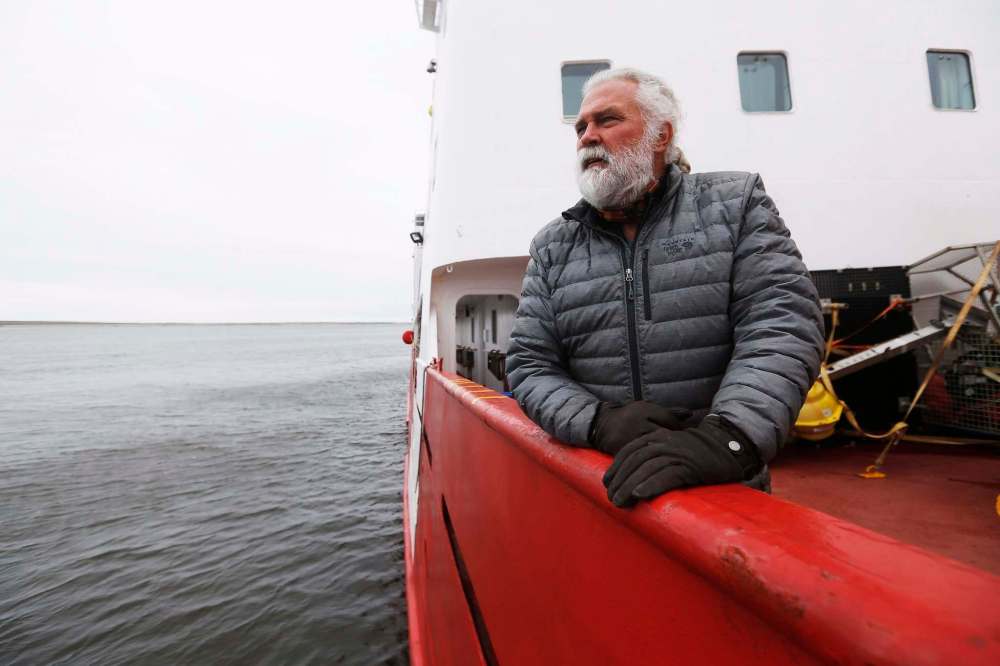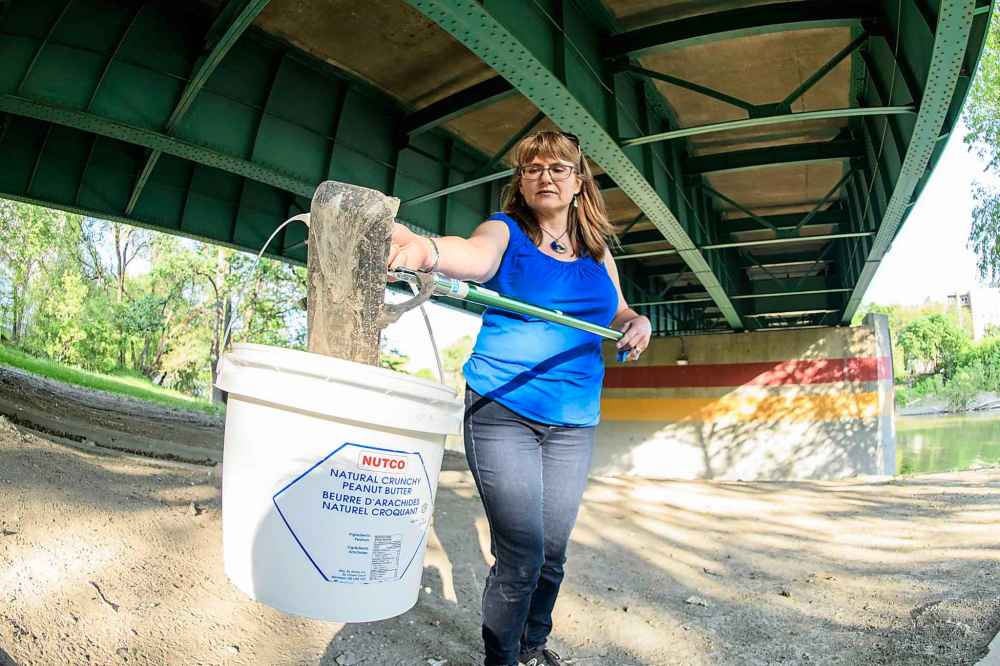Winnipeg scientists among 11,000 around world declaring ‘climate emergency’
Advertisement
Read this article for free:
or
Already have an account? Log in here »
To continue reading, please subscribe:
Monthly Digital Subscription
$0 for the first 4 weeks*
- Enjoy unlimited reading on winnipegfreepress.com
- Read the E-Edition, our digital replica newspaper
- Access News Break, our award-winning app
- Play interactive puzzles
*No charge for 4 weeks then price increases to the regular rate of $19.00 plus GST every four weeks. Offer available to new and qualified returning subscribers only. Cancel any time.
Monthly Digital Subscription
$4.75/week*
- Enjoy unlimited reading on winnipegfreepress.com
- Read the E-Edition, our digital replica newspaper
- Access News Break, our award-winning app
- Play interactive puzzles
*Billed as $19 plus GST every four weeks. Cancel any time.
To continue reading, please subscribe:
Add Free Press access to your Brandon Sun subscription for only an additional
$1 for the first 4 weeks*
*Your next subscription payment will increase by $1.00 and you will be charged $16.99 plus GST for four weeks. After four weeks, your payment will increase to $23.99 plus GST every four weeks.
Read unlimited articles for free today:
or
Already have an account? Log in here »
Hey there, time traveller!
This article was published 05/11/2019 (2228 days ago), so information in it may no longer be current.
OTTAWA — A handful of Winnipeggers are among 11,000 scientists worldwide calling for radical changes to how we live, eschewing academic jargon to declare an urgent “climate emergency.”
The move comes after a federal election in which a majority of voters opted for parties with strong environmental platforms, and large-scale marches across the country buttressed by teen activist Greta Thunberg.
“There is frustration from the scientific community,” said Candi Bezte, a University of Winnipeg environmental-science instructor who signed the petition.

“We’ve been talking about this for 30 years or more, and not nearly enough has been done to address the situation.”
While local scientists are optimistic Manitoba can transition to a greener economy, they say it will mean going beyond resting on the laurels of existing hydro efficiency and changing our daily lives.
The study says Earth “clearly and unequivocally faces a climate emergency,” and calls for six major goals to prevent disaster, such as keeping oil and gas in the ground, policies to slow population growth and replacing gross domestic product as a metric to measure economic growth with benchmarks based on sustainability and inequality.
Published Tuesday in the Oxford journal BioScience, the report is signed by biologists and ecologists as well as climate scientists. It calls for more than just negotiations and policy statements.
“Some people are going to have to change their jobs. And change is a frightening thing for anybody. But it is that level of action that it requires,” Bezte said.
David Barber, an eminent climate researcher at the University of Manitoba, hopes the study can move Canadians beyond the status quo.
“This isn’t something we can just keep debating forever and ever; we have to get at solutions, because we’re in a trajectory that is going in the wrong direction,” he said.
While Barber wasn’t aware of the study before it came out, he said it avoids some of the political diluting of the message that happens with global bodies such as the Intergovernmental Panel on Climate Change, and prescribes actions, unlike most scientific studies.
“We’ve been talking about this for 30 years or more, and not nearly enough has been done to address the situation.”
– Candi Bezte, University of Winnipeg environmental-science instructor
Barber said Canadians last debated how to cope with climate change a decade ago, and he believes there’s been cumulative support for serious action since, especially from young people.
“As a guy that’s been in this business for 35 years, I look at it and say, ‘Gee, I think we’re finally getting somewhere. the public is actually starting to pay attention to this now,” he said, citing the uptick in electric vehicles, solar technology and retrofitting buildings.
Barber is part of a Wednesday-night panel on the Fort Garry campus about how governments and individuals can respond to the climate-emergency declaration.
Randy Mooi, the Manitoba Museum’s zoology curator, also signed the petition, hoping it would create a critical mass to pull away from a “tipping point” and slow the damage.
“The declaration asks Manitoba and Canada to recognize that we, the world, are in a serious situation that requires serious attention. Canadians contribute more than their share of climate-change pollutants and activities, so we need to take particular responsibility to change our behaviour,” Mooi wrote in an email.
He said some parts of the document would need to be adjusted for local realities. For example, ecologically sound forms of cattle ranching could preserve prairie species, because converting rangeland into cropland would imperil the habitat for local birds.
Last month, the federal Liberals were re-elected on a plan to reduce emissions without a clear plan to meet the global targets needed to keep carbon emissions below catastrophic levels. A large chunk of those emissions will come from the controversial Trans Mountain pipeline project, which could either prop up or collapse the Liberal minority.
Meanwhile, the Conservative had pledged to invest in technology but did not commit to emission targets. They argue reduced emissions from Canada’s energy exports to developing countries should be counted — but not the emissions for imported consumer goods.

Bezte said real change will require Canadians to change how they vote, which companies they support and how schools teach science.
“If we can’t get countries and industry to make a difference, then we’re going to fall way short of the mark. So we’ve got to get the political will in place,” she said.
The provincial government’s current green plan has concrete measures to reduce carbon emissions, but it will require detailed follow-through, she said.
Although Manitoba’s hydroelectricity is far less emitting than coal in the rest of the Prairies, “that doesn’t mean that we can rest on our laurels,” she said.
dylan.robertson@freepress.mb.ca
History
Updated on Tuesday, November 5, 2019 6:54 PM CST: Adds photos


